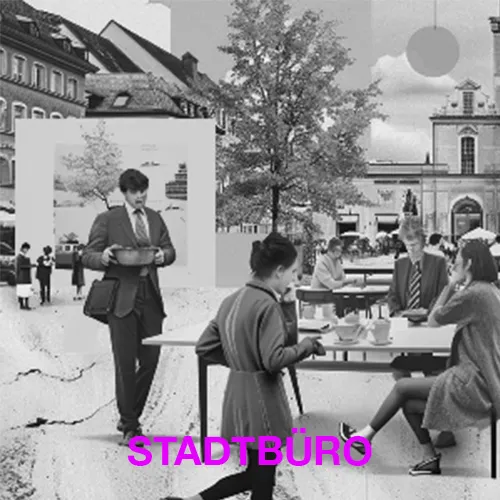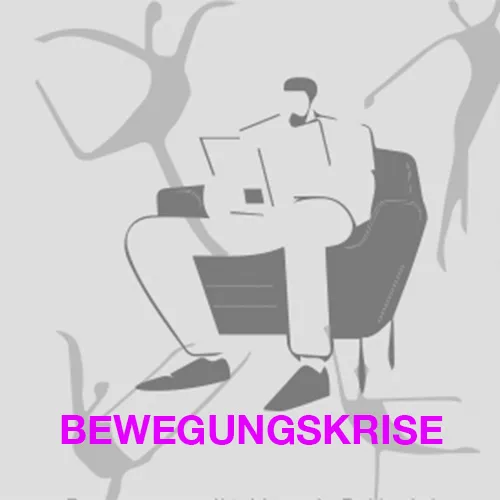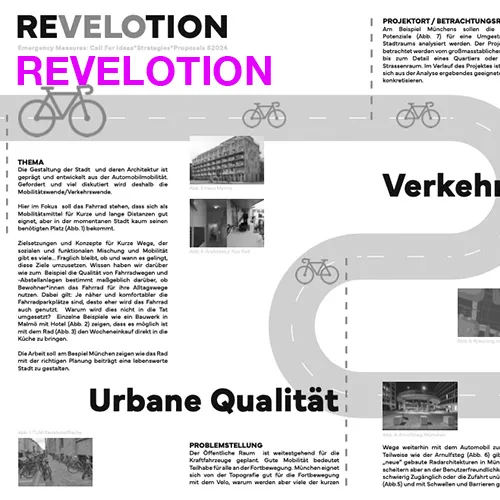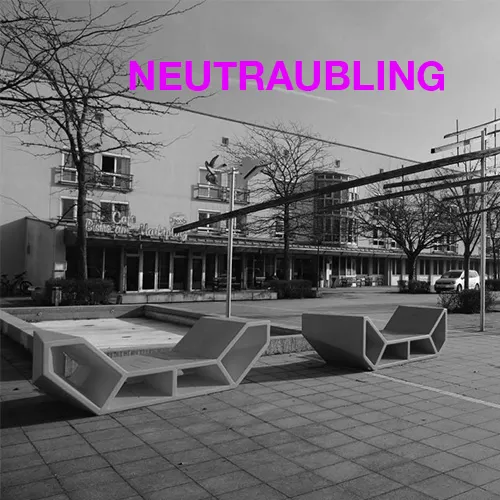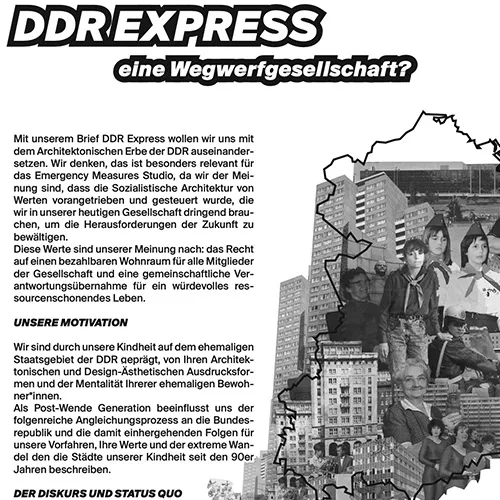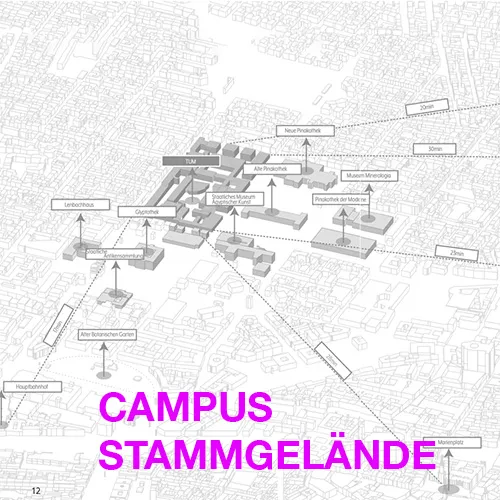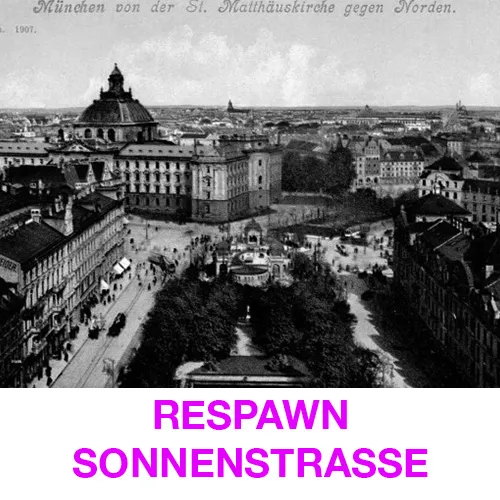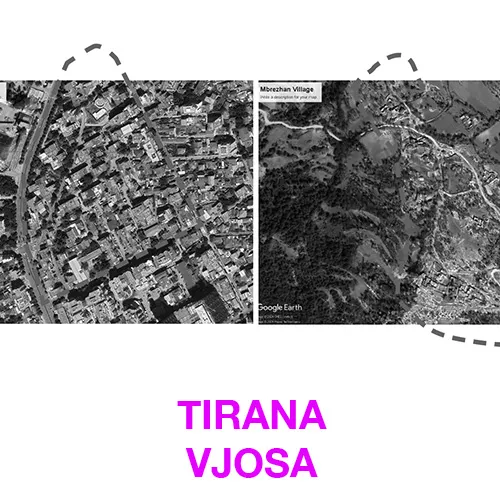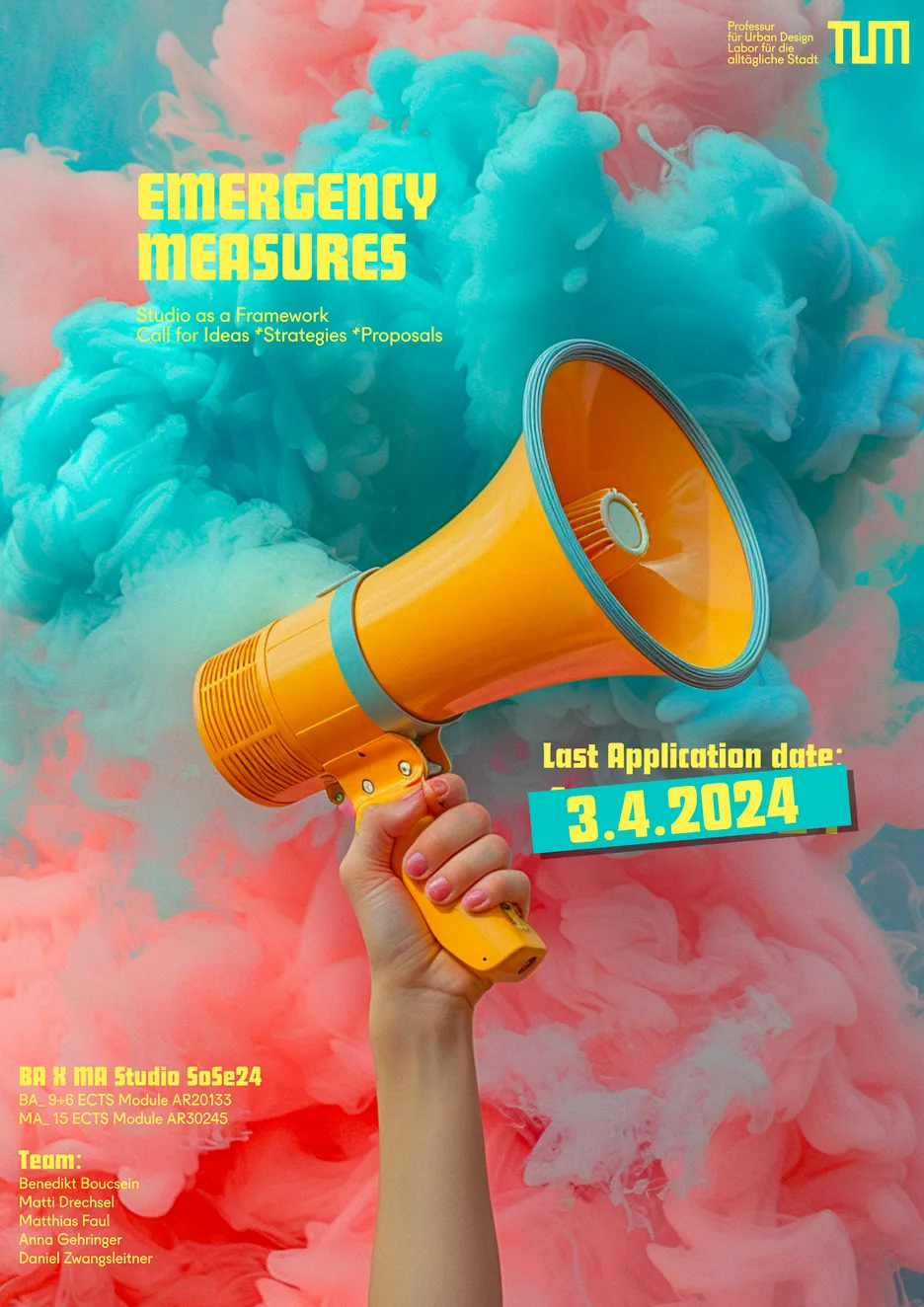
Call for Briefs:
Emergency Measures II - Studio as Framework
Team: Benedikt Boucsein, Matti Drechsel, Matthias Faul, Anna Gehringer, Daniel Zwangsleitner
Deadline: 3.4.2024
Emergency Measures – Nothing will be as before, and everything will be
The climate emergency, or more broadly the biosphere emergency, is not abstract anymore. Architecture and planning have been strongly involved in the development that led to the current situation, and mostly still are, directly or indirectly feeding the according narratives, or helping to ignore what is happening. But alternative movements are gaining traction, drawing strength from a long tradition of resistance and criticism in the discipline. These movements are very diverse, and they need to be, as the answers to the current crises are everywhere and nowhere: everything about the way we live will and has to change, while it must largely work with what is already there. We have to reinvent the new world inside of the old structures. And that includes studio teaching as well.
In our studio, we address this situation by offering a framework for ideas and initiatives that broadly encompass the horizon of urban design but can and should touch other disciplines, scales and approaches, as the world is entering unknown territories. We will create a studio environment where a variety of cases are discussed in depth, with different perspectives and aspects on the emergent conditions of the built environment. We will especially focus on "Bauwende", "Verkehrswende" and "Agrarwende", and support all initiatives that address them. We strongly encourage proposals that work with an emergency component. But they can also encompass “traditional” urban design and architecture, only with much less focus on the inherently destructive mechanisms that characterized these disciplines in the past.
Proposals can deal with:
- a site (p.e. ideas to prevent the destruction of a certain building, biological feature, or social context; or ideas to build/grow such a feature)
- a type (e.g. cooperative dwellings, suburban office estates, single family houses)
- an initiative that works towards new, non-polluting and non-exploitative living patterns, and that is anchored in space (cooperative, NGO, …)
The proposals should:
- directly and openly address the climate/biosphere emergency
- Have a strong spatial component, and result in a design proposal
- be anchored at a specific place (or several places)
- preferably (but not necessarily) be backed by actors on the ground to have a realistic chance for an actual impact
For exemplary project outcomes, see our website here (link) from mid-february on.
We are aiming at an equal balance between these four types of projects:
- Plan - a “classic” urban design proposal on a certain site that is presented and used for starting a discussion in politics, for example an alternative proposal or a proposal for a critical but somehow undisputed space. As a matter of principle, we avoid land take and the creation of impervious surfaces as well as demolition: “wir bauen nicht auf der Grünen Wiese”
- Strategy - develop a framework or strategy outlining principles and guidelines for the desired change in a given spatial setting
- Intervention – create an intervention in urban space through iteration and reflection that addresses an urbanistic issue. Only BA Thesis, only Summer semester (“Interventionsklasse”).
- Startup - develop an urbanistic business idea, or an idea for a new institution.
The four project groups will methodically communicate more closely within each other.
How we handle theme requests:
Both students and organizations can hand in a brief. Briefs can be written in German and English.
If you are a student (group):
1. Apply to info.ud(at)ed.tum.de (please CC matthias.faul(at)tum.de) with your idea with a pdf (3 A4 pages) that contains all important information on what the task should encompass. (for exemplary briefs, see here (link)
- Application is possible both for MA (Architecture and Urbanistik) and BA (Architecture) students. The studio is rewarded with 9 ECTS (BA) (Module AR20133) respectively 15 ECTS (MA) (Module AR30245). Additional ECTS Points for BA Students must be made plausible in the brief, for example with an additional submission.
- The minimum group size is 2 persons. You cannot work (or send in a draft) alone. Depending on the complexity of the topic, you can apply in groups of up to 6 persons. Please state in the proposal if you are open to more participants and if yes, how many and from which level. In that case, the brief will be declared as “open” on the website.
- The deadline is April 3rd, 2024
2. please indicate:
- whether your proposal concerns site, type, or initiative
- whether your proposal is a plan, strategy, intervention, or startup
3. We’ll reply within one week at most.
4. If the brief is considered, we will ask you for a personal interview, live or virtual.
5. All accepted briefs will be notified until April 5th, 2024. If your idea is accepted, we guarantee you a place in the project and you do not need to take part in the project market.
If you are a municipality, NGO, or other institution:
- please contact us early so we can discuss your idea with you, but by the end of February at the latest.
- If the idea seems fitting, we will ask you for a pdf (3 A4 pages) that contains all important information on what the task should encompass until Mid-March. We will then formulate the final brief based on that information.
- The brief will be shared on the website by the beginning of April 2024 latest, advertised via social media, so interested students can inform themselves.
- If two or more students choose the brief, it will be part of the course. Otherwise, we can share it again in the next semester.
- We expect a commitment from you to support the group with data, knowledge and constructive criticism.
The professorship will also provide own briefs.
How the studio works:
- Common goal: Each group works on their own brief, but we share our knowledge, material, space, experiences with each other. We are not competitors, but accomplices.
- Studio environment: The studio is the main working environment. The studio is your learning community. You are expected to involve actively in it and this will also influence your grade. Presenting your work and then leaving again is only acceptable if there are personal reasons for it, in which case you need to talk to us.
- EM knowledge pool: Central takeaways from former Emergency Measures Group, Urban Analysis methods and other methodological knowledge will be shared in the studio. You will only learn about the discipline of urban design if you understand all approaches that are part of your studio, their methods, their analyses. After the studio, the Emergency Measures knowledge pool will be expanded, and you are free to take it with you and develop it further.
- Occasional mixes: While you will be mainly working on your own brief, you will also be asked to mix with the other groups for short interactions and experiments. The professorship will introduce short exercises for this. Also, groups are encouraged to ask each other for help concerning interventions, group experiments, and installations.
- UD-Con and UD-Performa: During the semester, we will practice the discussion of your project in different, interactive formats. This includes classic “critique” sessions but other formats, too.
Questions in advance by e-mail to info.ud(at)ed.tum.de or to the assistants directly - or in person - are welcomed.
P.S. We plan to run the Emergency Measures format for five years, up to 2028. But, if the emergency ends earlier or even dissolves itself, we will do a series on aesthetic and beauty in urban design instead.
